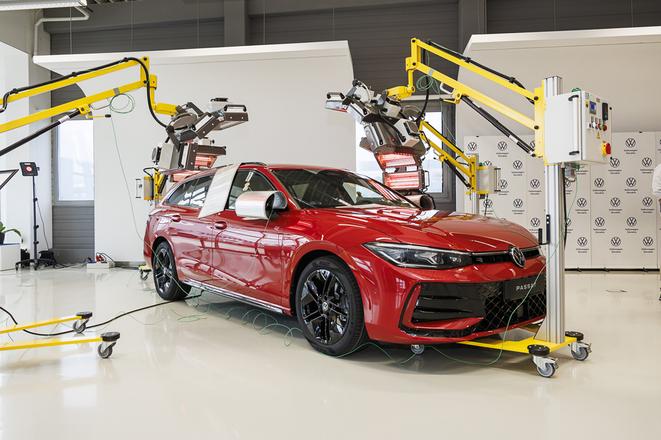In late October 2024, Volkswagen, Germany’s largest manufacturer, revealed that it plans to close at least three factories in Germany, lay off tens of thousands of staff, and downsize the remaining plants in the country as the group faces growing competition in China and slowing sales elsewhere. While Volkswagen’s plans do not yet affect its branch here, the problems in Germany are a warning for Slovakia. The automotive industry is the biggest pillar of the Slovak economy, generating as much as 12 percent of gross domestic product (GDP).
“The situation in the automotive industry in Slovakia is currently quite favourable, but the coming period will be decisive,” Viktor Marušák, secretary general of the Automotive Industry Association of the Slovak Republic (ZAP), told The Slovak Spectator. “Automotive companies in Slovakia are looking to attract new projects and investment (from their parent companies), and their success depends on a number of factors, including support from the state and the overall business environment.” Carmakers, their suppliers and other manufacturers are warning that the recently announced measures to consolidate the public finances, most of which are on the income side, will increase their costs and thus make them less competitive.
In the meantime, all four carmakers currently operating in Slovakia, the biggest and oldest being Volkswagen Slovakia, followed by Kia Slovakia in Teplička nad Váhom, Stellantis in Trnava and Jaguar Land Rover in Nitra, are already manufacturing electric cars or preparing to produce batterypowered models. A fifth carmaker, Volvo, is expected to launch production in late 2026 at the industrial park in Valaliky, eastern Slovakia, where it will manufacture electric cars exclusively.
Slovakia continues to lag in its adoption of e-mobility, with relatively few electric vehicles on the road. This low uptake is hindering efforts to expand the public charging infrastructure, slowing the country’s transition to sustainable transportation.


 VW Slovakia is the biggest carmaker in Slovakia. (source: Courtesy of Volkswagen Slovakia)
VW Slovakia is the biggest carmaker in Slovakia. (source: Courtesy of Volkswagen Slovakia)